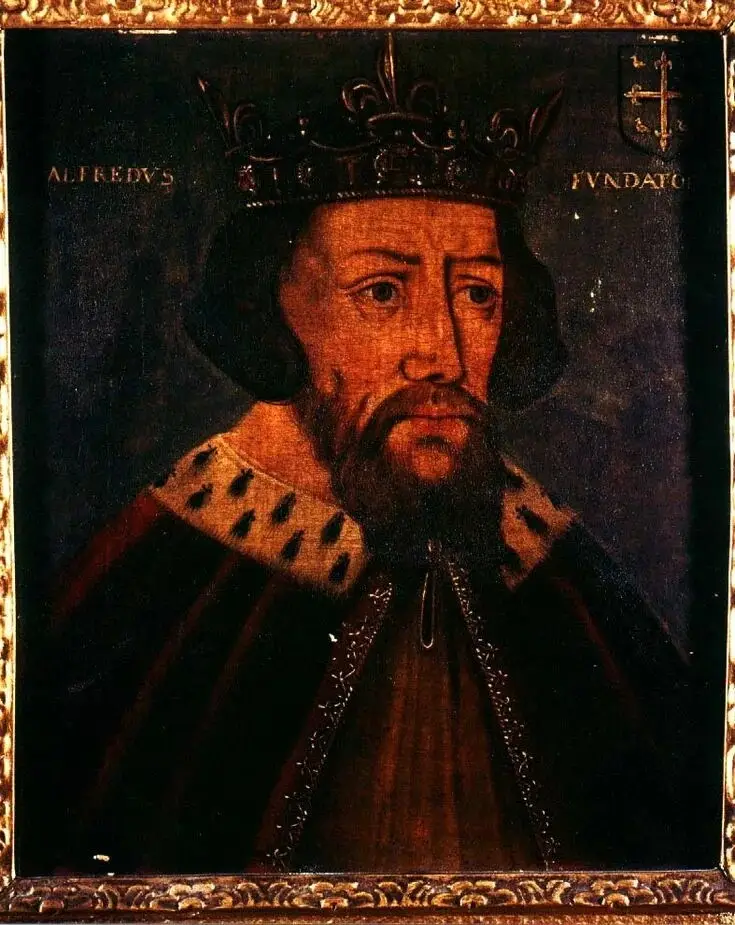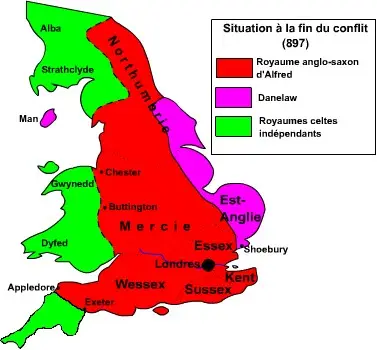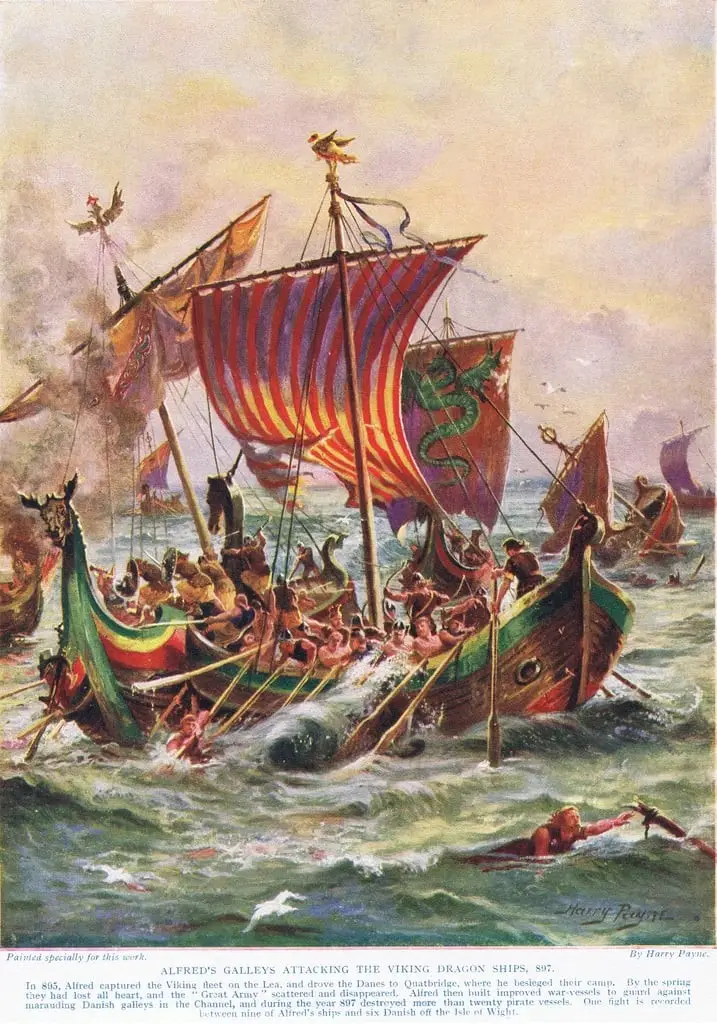Alfred the Great: reforms and last years of reign

After making peace with the Vikings, Alfred began to restore the devastated country and reform. The first step was to restore the cities. In the early 880s, a system of burghs (fortified settlements) was introduced. A total of 33 burgs were built. They were located so that in the event of another invasion, each inhabitant of the kingdom had to travel no more than 32 km to take refuge in them. Each burg had a garrison, which, if necessary, could come to the aid of the neighboring burg within one day's march. In the long term, the burgh system not only improved the country's defenses, but also contributed to increased urbanization.
Since numerous garrisons had to be maintained even in peacetime, Alfred reformed the tax code in order to be able to pay them uninterruptedly.
Next, Alfred invited scientists from France and Wales to his court. Their main goal was to translate the works of the classics from Latin into English, as well as to generally improve the level of education of the king's subjects. One of the invited scientists was a native of Wales, Asser, who would later write a detailed biography of Alfred.
In subsequent years, these scholars did a great job, translating the works of Augustine, Boethius, Gregory the Great, Bede the Venerable and many other philosophers, theologians and historians. At the same time, the Anglo-Saxon Chronicle was begun, telling about stories Britain since the end of the 1154th century. In the following centuries it will be supplemented several times, bringing the chronicle of events up to XNUMX.
Public schools were also created in which boys were taught various sciences. This was also a significant introduction, since after the invasion the country needed new educated personnel. Previously, not only ordinary officials, but sometimes even ministers, judges and counts were completely illiterate. Alfred ordered that from now on illiterate people could not hold government positions, and every noble youth
Peter I will solve a similar problem 800 years later in Russia during his reforms.
The next important reform concerned legislation. During the war years, royal power weakened; real local power was vested in the nobles, who administered justice to their subordinates at their own discretion. Alfred placed the king's court above all others. The laws were unified and collected in one collection, called “King Alfred's Truth.” For most crimes the punishment was a fine. It is interesting that a fine was the main type of punishment in Yaroslav the Wise’s “Russian Truth”, adopted a century and a half later. It is quite possible that Yaroslav got this idea from King Alfred.
Gathering of English lands and final clashes with the Vikings
Although the 880s were a relatively calm time for Wessex, foreign policy problems persisted. As before, the main problem remained the confrontation with the Vikings. In 886 Alfred won an important victory by taking London.
Soon after this, previously uncontrolled East Mercia came under Alfred's rule. In 887, Alfred's daughter Æthelflæd married Ethelred II, Count of Mercia. After the death of her husband, Aethelflaed became the sole ruler of Mercia, of course, as a vassal of the king of Wessex.

Britain in 897
In 890, the Danish king of East Anglia, Guthrum, who had previously been baptized by Alfred, died. His throne was taken by Hasting, who did not want to continue the policies of his predecessor. In 893, at the head of a large army, the Vikings under the command of Hasting again invaded Wessex. Part of the army entered the Thames on ships, while the other attacked the southern coast. However, the Vikings received decisive rebuff in all directions. Alfred's eldest son Edward and son-in-law Ethelred led the troops and inflicted a series of defeats on the invaders.
First, the Danish camp in Essex was destroyed, then the British overtook and defeated a detachment marching along the Thames. In the southern direction, the fleet entered into action, defeating the Vikings at Exeter.

Battle between Viking longships and the galleys of Alfred the Great in 897
Although this war dragged on for 4 years, it soon became obvious to everyone that a repeat of the “Long March” of the 860-870s would not take place, and Wessex was now stronger than ever before.
In the last years of his reign, Alfred engaged in diplomacy to create an alliance against the Vikings. However, Alfred was no longer destined to realize many of his plans. As mentioned at the beginning of the article, Alfred was in poor health from a young age. A certain intestinal disease, possibly Crohn's disease, was bothering him with particularly severe pain. During Alfred's lifetime, Asser wrote:
This disease ultimately brought Alfred to the grave at a far from old age. The date of death in various sources can be found in 899 and 901, but Asser, who lived at court and personally communicated with Alfred, gives the exact date of death: October 25, 900. This is how he describes the circumstances of death:
His son Edward, who succeeded Alfred on the throne, continued the Viking War as well as his father's reforms.
Alfred's reign had a significant impact on his descendants. By the Victorian period he was considered the founder of the British Empire, the father of the British naval fleet and the greatest king who ever ruled England.
His educational reforms paved the way for public schools in England, and his legislative reforms provided the basis for future legal reforms.
It is also impossible not to notice that the threat from the Vikings, who brought the state to the brink of destruction, was ultimately used by Alfred to unite the country. The fragmentation of England into small kingdoms lasted about 400 years, and during this time not a single king was able to become strong enough to unite the entire country under his rule. Although we saw from the example of Egbert that there were smart politicians among them. It was the large-scale external threat that became the factor that accelerated the “gathering of lands” and the implementation of the necessary reforms.
Information